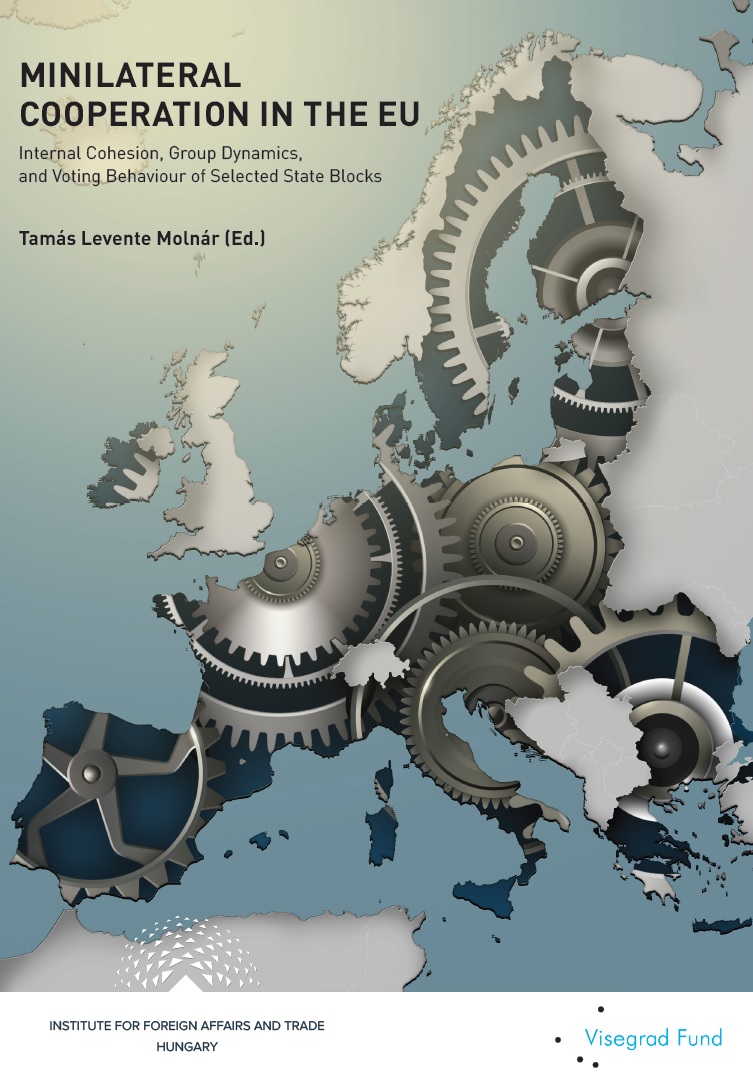Edited by Tamás Levente Molnár
Published by the Institute for Foreign Affairs and Trade (Budapest, 2021)
The IVF Minilateralism project – Minilateral Cooperation in the EU Internal Cohesion, Group Dynamics, and Voting Behaviour of Selected State Blocks aims to provide an extensive analysis about how selected minilateral groups function in the EU. The numerous regionally and functionally organised groups formed by the EU Member States over the last ten years have become increasingly important in the EU’s policy formulation. These various groups promote integration within the EU by bringing new dynamics to European politics, while also contributing to the further fragmentation of the Union.
This project aims to examine and compare the functionality and effectiveness of six different minilateral groups which in part often, in part just sometimes operate collectively to influence the decision-making processes within the EU institutions.
The six groups in question are
- the Benelux,
- the E3,
- the Mediterranean Seven,
- the Nordic-Baltic Six,
- the Visegrad Group,
- the Weimar Triangle.
Authors:
Nikolett Garai
Vít Havelka
Levente Kocsis
Matúš Mišík
Tamás Levente Molnár
Juraj Sýkora
Our Partners:
International Visegrad Fund
Slovak Foreign Policy Association (SFPA)
EUROPEUM Institute for European Policy
For the full text please click here!

